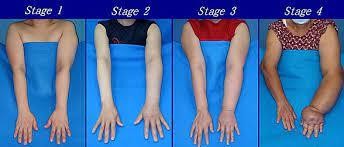A 65-year-old patient with type 2 diabetes has a urinary tract infection (UTI). The unlicensed assistive personnel (UAP) reported to the nurse that the patient's blood glucose is 642 mg/dL and the patient is hard to arouse. When the nurse assesses the urine, there are no ketones present.
What collaborative care should the nurse expect for this patient?
Administer IV fluids rapidly to correct dehydration.
Routine insulin therapy and exercise
Cardiac monitoring to detect potassium changes
Administer a different antibiotic for the UTI.
The Correct Answer is A
Choice A rationale: This patient is likely experiencing hyperosmolar hyperglycemic state (HHS). Rapid administration of IV fluids is crucial to correct severe dehydration associated with HHS.
Choice B rationale: Routine insulin therapy and exercise might be components of diabetes management but wouldn't directly address the immediate concern of severe dehydration and high blood glucose.
Choice C rationale: Cardiac monitoring for potassium changes might be necessary but isn't the primary immediate intervention for HHS.
Choice D rationale: Administering a different antibiotic for the UTI is incorrect, because there is no evidence that the current antibiotic is ineffective or causing adverse effects. The UTI may have triggered the HHS, but it is not the main problem that needs to be addressed urgently.
Nursing Test Bank
Naxlex Comprehensive Predictor Exams
Related Questions
Correct Answer is C
Explanation
Choice A rationale: Performing active range of motion exercises may not be safe or appropriate immediately following a hemorrhagic stroke.
Choice B rationale: Maintaining the head of bed flat or at a 30-degree position might be used for ischemic strokes but not necessarily for hemorrhagic strokes.
Choice C rationale: Teaching measures to avoid the Valsalva maneuver (straining during activities like defecation) helps prevent sudden increases in intracranial pressure, which can be detrimental after a hemorrhagic stroke.
Choice D rationale: Monitoring for Battle's sign (bruising behind the ears associated with basilar skull fracture) is not relevant in the care of a hemorrhagic stroke.
Correct Answer is B
Explanation
Choice A rationale: Her healthcare provider prescribing a calcium channel blocker for hypertension is not directly linked to lymphedema.
Choice B rationale: Sustaining an insect bite to her left arm yesterday - Trauma or injury, such as an insect bite, to the affected limb post-mastectomy can increase the risk of
lymphedema.
Choice C rationale: Losing twenty pounds since the surgery might influence overall health but doesn’t specifically relate to lymphedema.
Choice D rationale: Her hobby of playing classical music on the piano is unrelated to the risk of developing lymphedema.

Whether you are a student looking to ace your exams or a practicing nurse seeking to enhance your expertise , our nursing education contents will empower you with the confidence and competence to make a difference in the lives of patients and become a respected leader in the healthcare field.
Visit Naxlex, invest in your future and unlock endless possibilities with our unparalleled nursing education contents today
Report Wrong Answer on the Current Question
Do you disagree with the answer? If yes, what is your expected answer? Explain.
Kindly be descriptive with the issue you are facing.
